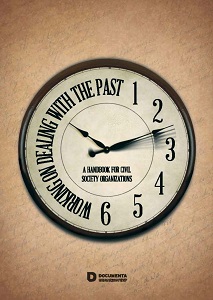Remembering Victims and the Right of Younger Generations to Learn Facts-Based History
Remembering Victims and the Right of Younger Generations to Learn Facts-Based History
Author(s): Vesna Teršelič
Subject(s): Civil Society, Political history, Social history, Recent History (1900 till today), Studies in violence and power, WW II and following years (1940 - 1949), Post-War period (1950 - 1989), Transformation Period (1990 - 2010), Present Times (2010 - today), History of the Holocaust, Politics of History/Memory, Peace and Conflict Studies
Published by: Documenta - Centar za suočavanje s prošlošću
Keywords: civil society; 20th century; wars; remembrance; memories of crimes;
Summary/Abstract: When talking to people from different sides of social divides, I have witnesses the fact that piety to ‘their’ victims is needed in order to establish normal relations with the living. As a child, I heard a neighbour, who lost her husband, saying that she expected the public not only to talk about fascist camps, such as Gonars to which my grandfather was taken from occupied Ljubljana in 1942, but also of prisons such as the one in which she herself was imprisoned after WWII in 1945. She wished that her suffering, from the hands of repressive institutions of that time, to be also remembered. Today we remember that some soldiers, who themselves were victims of Nazi crimes and prosecuted as partisans and communists, after the war became themselves violent prosecutors and torturers. Although emphasizing piety to all innocent victims is slowly becoming a widely accepted standard of political correctness, few countries have approached the ideal of overcoming divisions into ‘our’ and ‘their’ victims, in which conditions have been met to investigate circumstances of death and memory of all who had suffered.
Book: Working on Dealing with the Past - A Handbook for Civil Society Organizations
- Page Range: 13-17
- Page Count: 5
- Publication Year: 2013
- Language: English
- Content File-PDF

